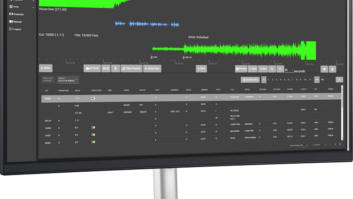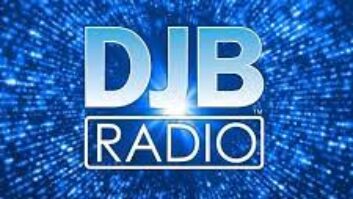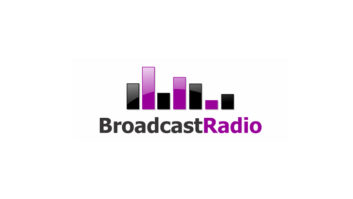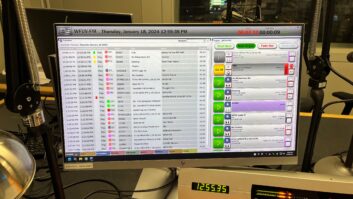A decision by the U.S. Patent and Trademark Office is expected to delay further a prominent lawsuit involving radio automation technology.
The USPTO, citing “prior art” not previously available, granted second reexamination requests of the patents that lie at the center of an infringement suit that targets a half-dozen large broadcast groups. The development is encouraging for the defendants and other radio broadcasters, according to a patent attorney familiar with the review process.
The patentee and plaintiff is DigiMedia Holding Group LLC and its associated company Mission Abstract Data, which has been aggressive in pushing some radio broadcasters to sign licensing agreements. The patents pertain to the selection and retrieval of music from an online digital database stored in a hard drive for transmission by a radio station, according to the USPTO.
The office is ordering all or some of the claims from patents 5,629,867and 5,809,246 to be reexamined again in light of what it calls “substantial new questions of patentability” raised in the reexamination request.
“A substantial new question of patentability affecting claims 1–10 of U.S. Patent Number 5,629,867 issued to [Robert] Goldman is raised by the request for ex parte reexamination. The requested claims will be reexamined,” wrote a USPTO reexamination specialist in the most recent order. The USPTO issued a similarly worded statement about the majority of claims in the second patent.

This image is from a United States Patent & Trademark Office document describing the disputed patent for selecting and retrieving of music from a digital database.
Observers who have reviewed the USPTO findings said that new or additional prior art has been discovered that bolsters claims of broadcasters and equipment sellers that the technology had existed in the marketplace prior to patents being issued.
Changed hands
The patents originally were issued to Goldman, an inventor, in 1997. They have changed hands several times before becoming property of Mission Abstract Data, which has been described by some observers as a “patent troll.”
The ex parte reexamination requests, filed by Broadcast Electronics, were granted in August and allow the patentee 60 days to file a response. The deadlines for DigiMedia to respond are Oct. 21 and 23. It will be allowed to provide more information to the examiner about why each patent is different from the prior art.
Broadcast Electronics is an automation systems supplier to broadcast groups; it is not a defendant in the lawsuit.
The patent infringement suit, which has been followed closely by broadcasters, was filed by Mission Abstract Data LLC in March 2011. That federal case — in United States District Court for the District of Delaware — has been on hold since the presiding federal judge issued a stay late last year.
RW reported earlier this summer that the plaintiff had asked the judge to lift the stay and accused the defendants of employing a delay strategy. The defendants include CBS Radio, Cumulus, Greater Media, Beasley Broadcasting, Entercom and Cox.
Attorneys told Radio World it is unlikely the judge would lift the stay, given that the second reexamination requests were granted.
Fletcher, Heald & Hildreth communications attorney Harry Cole, a contributor to Radio World, wrote in his firm’s CommLawBlog that another reexamination likely will take until early 2013.
“While the mere raising of questions doesn’t rise to the level of final conclusions, we suspect that it can’t be a good sign for anybody hoping to rely on the patent subject to such questions. We’ll just have to wait and see how the further reexamination proceeding comes out,” Cole wrote.
After the first reexamination, USPTO examiner Jason Proctor last year rejected many of the key claims in the patents held by DigiMedia but upheld others.But the company then amended some of the rejected claims; once reviewed by the examiner, these were later determined to be patentable.
The Patent Office is likely to assign a different patent examiner for the second reexamination to avoid any appearance of bias, according to Bill Ragland, a patent attorney with Womble Carlyle Sandridge & Rice.
“It’s mostly to have a second set of eyes looking at the material. This can be very complicated material, with lots of subtleties,” Ragland said.
Expect to see a see a similar schedule as the first reexamination, Ragland said.
“There will be some back and forth between the USPTO and the Mission Abstract Data people. Then the USPTO will decide whether or not any changes to the patents need to be made, whether any claims will be confirmed or whether any claims totally rejected,” Ragland said. “And MAD can still appeal if they do not agree with the findings.”
Ragland, who is familiar with the federal lawsuit but not involved with it, said the latest developments are “not all that common” but would not call the developments “highly unusual.”
“Obviously, the new art is quite compelling for the USPTO to go to the extent of granting another reexamination,” Ragland said. “The MAD lawsuit depends totally on the validity of those two patents.”
Prior art submitted by Digilink and Dalet played a role in the first reexamination of patents. The new reexamination certificates cite new prior art from Katz, RCS and ENCO along with some existing patents held by several parties not previously viewed by the examiner.
Meanwhile, a number of radio broadcasters have reported receiving letters this summer from DigiMedia requesting they sign a licensing agreement in order to use the technology.
It’s unclear how many broadcasters have signed licensing agreements; DigiMedia has never released figures. Townsquare Media LLC, originally named as a defendant in the patent infringement case, was dropped from the suit in July 2011. That development fueled industry speculation that the two sides reached a settlement and likely entered into a licensing agreement; both declined to comment on the speculation.
Communications attorney Cole said he continues to caution broadcasters to check with competent patent counsel to determine the validity of the patents at this point, especially considering the need for a second patent reexamination.
“The MAD letter is based on the assumption that MAD has patents covering this particular technology. Therefore, the stations are infringing and should be paying MAD money to use that technology. The MAD claim falls apart if there are questions regarding the validity,” Cole said. He, like Ragland, is not involved in the lawsuit.
Cole reminds broadcasters that the first reexamination narrowed some of MAD’s patent claims but that “the USPTO ultimately did uphold them.”
Meanwhile, the patents expire in 2014, Cole said, though that doesn’t mean the plaintiffs are out of luck after that point.
“If they are ultimately to win at the USPTO and that the patents are valid, (MAD) could still say that broadcasters owe for historic infringement up until the 2014 date,” Cole said.
As in the past, messages to DigiMedia and MAD seeking comment were not answered.











